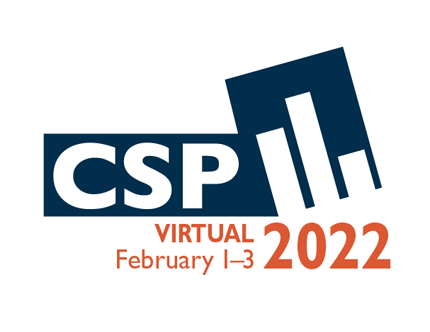Submit an Abstract
Poster Abstract Submission — CLOSED
July 8 – August 19, 2021
Would you like to share your experience as a statistical practitioner solving real-world problems? If so, an electronic poster presentation is a great way to have an extended face-to-face discussion. A poster presentation also serves as an excellent teaching tool, allowing for direct and immediate feedback; broad exposure; and the ability to display extensive graphics, tables, and animations.
We are calling for electronic posters that provide opportunities for attendees to learn about practical applications of statistical methodologies and best practices in one of the four themes of the conference.
The objective of this theme is to help conference participants develop skills and perspectives that increase their potential for organizational impact as managers, leaders, mentors, and strategists. Presentations will enable participants to return to their jobs with new ideas, techniques, and strategies for improving their ability to assume leadership roles, develop and advance their careers, and assist others in doing the same. Potential topics include the following:
- Organizational impact and influence
- Building infrastructure
- Team building and strategy
- Diversity and inclusion
- Leadership and management
- Mentoring
- Career development and advancement
- Ethics in statistical practice
The objective of this theme is to provide attendees with practical knowledge about data engineering, initiation of new projects, impact of study design and sampling, importance of data collection and data management, and related challenges for structured and unstructured data. Presentations will feature information relevant to a broad range of applied statisticians working in diverse settings. Potential topics include the following:
- Experimental, clinical trial, observational, or survey research study design
- Sampling methodology
- Statistical analysis plans and case report forms
- Data management
- Data engineering
- Educating others about study design and data
Note: For submissions in this theme, please indicate whether your presentation is targeted to an audience with little exposure to the topic (introductory) or assumes a base level of knowledge (intermediate).
The objective of this theme is to provide attendees with practical knowledge about modeling and analyzing data of various forms through the application of state-of-the-art statistical or machine learning methods. Presentation methods should use illustrative data analysis examples and may focus on a variety of data types from varied applied settings. Presentations will feature information relevant to a broad range of applied statisticians working in diverse settings. Potential topics include the following:
- Modeling
- Inferential and hypothesis testing
- Estimation
- Predictive analytics
- Data visualizations
- New packages or procedures
- Implementing reproducible methods
- Analytics, big data, and unstructured data analytic methods
- Machine learning
- Evidence-guided statistical practice
Note: For submissions in this theme, please indicate whether your presentation is targeted to an audience with little exposure to the topic (introductory) or assumes a base level of knowledge (intermediate).
The objective of this theme is to help conference participants develop skills that will improve their written and verbal communication of both scientific and nonscientific information, thus enabling them to increase their impact as strategic, consultative, and collaborative statisticians. Potential topics include the following:
- Foundations of listening and communication skills across the statistical consultation project
- Understanding your audience
- Presenting statistical results to nonstatisticians
- Graphical presentation strategies
- Writing and reviewing manuscript submissions
- Tips and tricks for successful grant writing
- Writing white papers for industry
- Speaking to the media
- Educational efforts in communication
- Communication for consulting and collaboration
The posters should be consistent with the following conference objectives:
- Learning statistical techniques that apply to your job as an applied statistician
- Learning how to better communicate with customers and clients
- Learning how to have a positive impact on your organization
Poster abstract submissions will be reviewed and competitively evaluated on the above objectives, as well as their ability to communicate established methods and techniques applicable to solving real-world problems in statistical practice. The topic should be relevant and practical for a variety of statistical practitioners.
All submissions should include a title, author information, and abstract text (between 800 and 1,200 characters).
Presenters are required to host their electronic posters during their assigned 75- to 90-minute session.
Single-slide posters with hyperlinks to graphics or background information are preferred; if a multiple-slide poster is used, it is recommended that no more than four slides be included.
Presenters should also have a one-minute “elevator pitch” prepared to orally present and summarize their material. For more information about the poster format, see Poster Presentation Tips.
Best Student Poster
This year, as in previous years, there will be an award for the best student poster. All student posters presented at CSP 2022 will be evaluated at the conference by a panel of at least four judges on the topic, methods used, and presentation of the material visually and orally.
The award will be announced at the Closing General Session of the conference and reported by the ASA on Facebook and Twitter and in Amstat News. The winner will be given a certificate from the ASA and a one-year student membership. (If the presenter is not there, the certificate will be mailed.)
